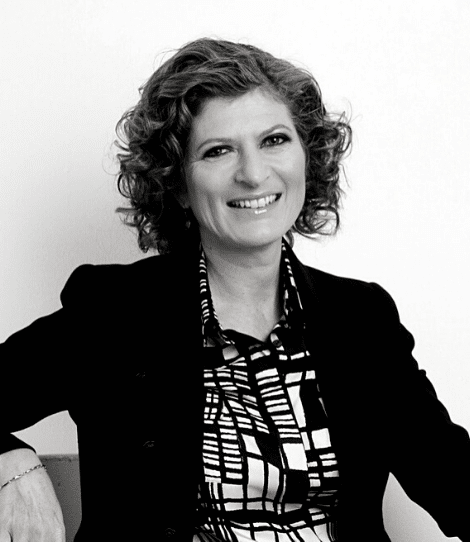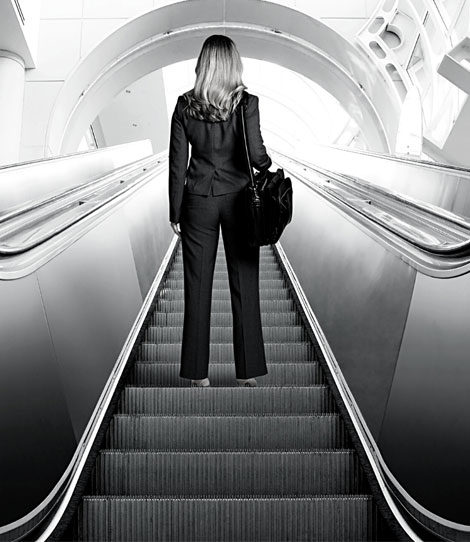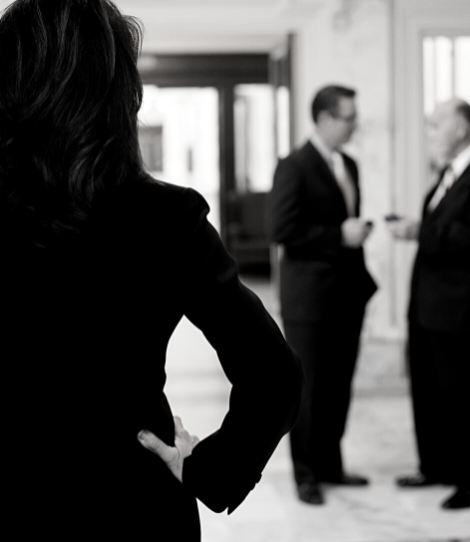
We were both staying with mutual friends, and the next day another fellow guest asked me, “What’s it like presenting Start the Week?” My dinner companion immediately leant forward, excited. “Do you present Start the Week?” he asked. “Yes,” I replied curtly and returned to the conversation, thinking that just four syllables from him – What do you do? – would have elicited that information the previous night.
Why do men dominate the conversation?
Why do men underestimate women so much? Why do so many of them indulge in conversational manspreading, taking up a disproportionate amount of speaking time at our expense? Why do they pay so little attention to our opinions, and then challenge our expertise if we do get a word in edgeways? It’s all because there is still an authority gap between women and men. We still take women less seriously than men, however much lip service we pay to equality. We still assume a man knows what he’s talking about unless he proves otherwise, while for women it’s all too often the other way round.
Why the authority gap is a problem for women in midlife
And the authority gap is the mother of all gender gaps. If women aren’t taken as seriously as men, they’re not going to be hired as readily, promoted as fast or paid as much as men. And the sort of behaviour that the authority gap leads to – women being interrupted, talked over, underestimated, ignored and patronised – is bound to dent their confidence and make them feel less entitled to success.
In some ways, the authority gap gets worse as we age. If men have no sexual interest in us, they’re going to be less inclined to discover whether we are interesting as people. Frances Morris, 62, is the fabulously impressive director of Tate Modern, and she was one of the many fascinating women I interviewed for my book, The Authority Gap. ‘As director of Tate Modern, I can spend all day as a powerful, articulate person who’s taken seriously, and I can leave this building and I am nobody,’ she told me. ‘Because as a woman in the world out there, I’m not taken seriously. I’m very often in situations where people don’t know my job and my hand is shaken after the hand of a male colleague, my eyes are met after the eyes of my husband are met, and no interest is shown in my opinion if it’s just my opinion as a late middle-aged female. I see all that because it’s in stark contrast with the way I’m approached and treated when it’s known I’m the director of Tate Modern.’
Might that not also be true of men in a similar position? ‘No,’ she insisted. ‘I’ve worked for three male directors of Tate Modern, and it hasn’t happened to them.’
Where are the women authorities?
Part of the problem is that so few older women are presented to us as voices of authority, particularly on TV. Yes, there’s Mary Beard from time to time, and Newsnight’s Kirsty Wark is over 60. But that’s about it, at least for serious subjects. If older women want to appear on our screens, they have to make do with Cash in the Attic or Bake Off. TV controllers seem to have collectively decided that viewers can’t bear the sight of a female wrinkle, even though we’re apparently quite happy to watch men whose faces look like a relief map of the Mendips. No wonder we’re still so quick to associate ‘male’ with ‘authority’ and struggle to do it with ‘female’.
The benefits to being fearless
Getting older, though, does make us braver. And that can make us formidable. Elaine Chao, 67, was Transportation Secretary under Donald Trump and Labor Secretary under George W. Bush. ‘I am a lot more confrontational now,’ she told me last year. ‘I think it’s age. I just went into a meeting recently, in the Situation Room, I was the only one against this whole room. And someone said, I basically took on a bazooka and killed them all. I think if I were younger, I would be more reluctant. But now it’s like, I don’t care.’
She was happy to stand up to Trump too. ‘He respects me. I’m not afraid of him. He smells fear. Maybe because I am the age I am, I’ve done this job before, I know what I’m doing. And so, I’m not afraid to approach him, I’m not afraid to call him, I’m not afraid when he calls me. And I give him my unvarnished opinion. I’m tactful and diplomatic. I select a good time. But I’m straight with him, and he respects that.’
Not putting up with it anymore — for men or women
As we get older, we can be more confident about calling out the mandermining and manderestimating that the authority gap engenders. Mary Beard told me she no longer puts up with being interrupted or talked over. ‘I say, “Hang on, let me speak. Let the girl speak.” I say, “Boys, you’ve had your turn, let me say something.” It’s easier as I get older. I do it in a feebly witty way.’
But it’s still maddening to have to do so. It’s time that men started to change their behaviour towards women. And it’s in their own interest to do so. Sexism isn’t a good look for a man, so if they want to get on better with their female friends, colleagues, dates and partners, they could start by according us equal respect.
Mary Ann Sieghart
The Authority Gap is published on July 1 by Doubleday, £16.99
We’re delighted to announce that Women in Journalism (@WIJ_UK) is offering the Noon community an exclusive, free ticket to their event — a conversation with Mary Ann Sieghart (@MASieghart) and Amber Rudd (@AmberRuddUK), former Home Secretary and Secretary of State for Work and Pensions, about #theauthoritygap and how to address systemic sexism. Sign up here.
This post contains affiliate links.
work
View All
Picture:Getty Images
Saying no at work is my superpower: how to change your attitude
Anniki Sommerville tells how to make saying no an opportunity for a new career path.

Picture: Getty Images
Sheryl Sandberg on NOON: ‘It’s fantastic’
Sheryl Sandberg throws her weight behind Noon’s campaign to highlight the last bastion of discrimination and the forgotten part of diversity – ageism

Midlife reskilling is a revolution we need
The government’s reskilling initiative is perfect now that we’re all reconsidering returning to our old lives.


